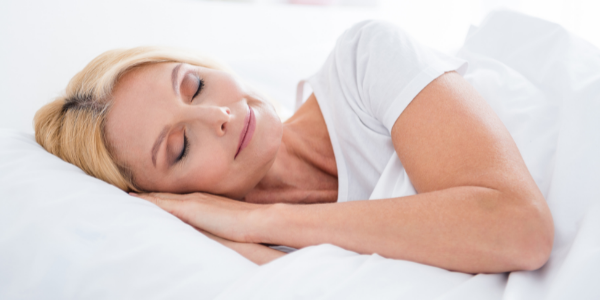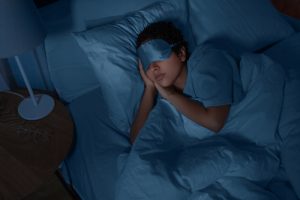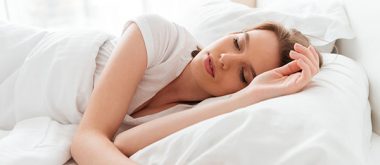Menopause is a time of great change for women. Many factors can affect the quality and quantity of sleep during this time, but it’s important to make changes to your sleeping habits to improve how you feel during this transition. In this post, we will go over six ways that you can improve your sleeping habits while going through menopause.
1. Exercise Regularly
One of the best things that you can do to improve your sleeping habits is to exercise every day. It’s important to find an activity that you enjoy so you can keep doing it. If you don’t like running or other cardiovascular exercises, maybe take a yoga class or try swimming instead. You should aim for at least 150 minutes of moderate cardio or 75 minutes of high-intensity aerobic exercise per week. More specifically, many studies have shown that 30 minutes of daily walking significantly helps with sleep quality and duration. This is likely because exercise encourages the production of endorphins, which help regulate sleep hormones and increase the feeling of pleasure and reward. Even if it feels like too much effort sometimes, make sure that you try to get at least 30 minutes of exercise every day.
2. Keep Your Thermostat Comfortable
The amount of sleep hormone, melatonin, that your body produces is controlled by the temperature of your environment. The optimal sleeping environment is around 60 to 67 degrees Fahrenheit or 15 to 19 degrees Celsius. If it’s too hot or cold in your bedroom, that will disrupt the production of melatonin and reduce your sleep quality. It’s extra important to keep a comfortable room temperature during menopause because many women experience night sweats as part of their symptoms. Keeping the room cool enough to encourage relaxation but warm enough so you aren’t shaking with chills can make all the difference for getting better sleep.
 3. Reduce Noise and Light in Your Room
3. Reduce Noise and Light in Your Room
The quality of your sleep is greatly reduced by exposure to light and noise while you’re sleeping. If it’s too bright in your room, that will disrupt melatonin production and make it harder for you to fall asleep at night. Even small amounts of light are enough to have an effect on your sleep quality, so use heavy curtains or blackout shades on your windows if necessary. Noise also has a big effect on the quality of sleep you get. If there is unnecessary or loud noise outside of your window, try using earplugs to block out some of the distracting sounds throughout the night.
4. Try Sleeping With All Electronics Out of the Room
Many women find it helpful to completely ban all electronics from their sleeping areas. This includes laptops, televisions, tablets and mobile phones—anything with a screen should be taken out of the room before going to sleep. There is a good reason for doing this: Even small amounts of blue light emitted by these devices can cause disruptions in your circadian rhythm and interfere with melatonin production. If you’re having trouble falling asleep at night, or if it takes you more than 30 minutes to fall asleep on some nights, try taking these gadgets out of your bedroom as soon as you get back from work. You could also experiment with wearing blue-blocking glasses if that’s an option for you.
5. Try Sleeping on Your Left Side
Studies have found that sleeping on your left side can help optimize the balance of hormones produced by your endocrine system. If you sleep in other positions, it’s likely that estrogen is dominant in one hemisphere of your body while progesterone is dominant in the other. Sleeping on your left side encourages significantly more blood flow to the uterus and therefore increases progesterone production in this area.
6. Get Plenty of Natural Sunlight Close to Wake-Up Time
Getting daily exposure to sunlight when possible is very important for hormone regulation during menopause because many studies have found that vitamin D deficiency can lead to major disruptions in female reproductive function. Keep track of when you get sun exposure over the course of the day, and try to make sure you’re getting about 20 to 30 minutes of direct sunlight every day. That could mean going for a walk or sitting in your backyard or on your porch, just as long as you’re exposing yourself to the sun without sunscreen.
Conclusion
If you have been struggling with sleep issues as a result of menopause, there’s a good chance that some lifestyle changes can help. In particular, try to keep your bedroom as cool as possible, reduce noise and light in the room, avoid all electronic devices before going to bed and experiment with sleeping on your left side. Avoiding vitamin D deficiency may also help regulate your hormone levels.

 3. Reduce Noise and Light in Your Room
3. Reduce Noise and Light in Your Room



